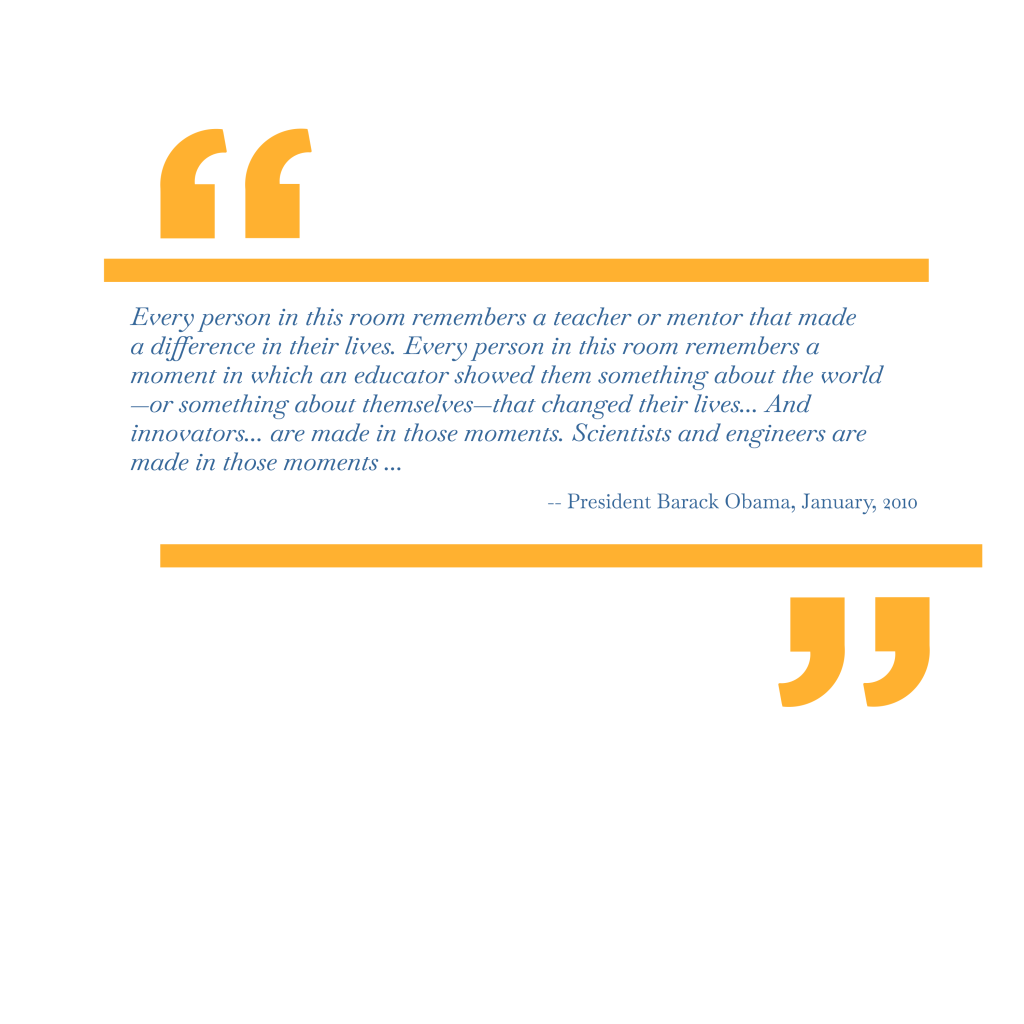Best Mentoring Practices for Undergraduate Research
3.2 Mentoring Students in STEM
 As the lack of diversity in race and gender persists in Science, Technology, Engineering, and Mathematics (STEM) fields in the United States, it is expected that more than nine million professionals will be needed in these fields by 2020 (Vilorio, 2014). However, increasing the number of qualified job seekers will not happen without a deep investment in students, particularly those from underrepresented groups. Studies have shown that employees with research experience and support from mentors become more confident, independent, and reliable professionals than their counterparts who did not have a research experience and a mentor.
As the lack of diversity in race and gender persists in Science, Technology, Engineering, and Mathematics (STEM) fields in the United States, it is expected that more than nine million professionals will be needed in these fields by 2020 (Vilorio, 2014). However, increasing the number of qualified job seekers will not happen without a deep investment in students, particularly those from underrepresented groups. Studies have shown that employees with research experience and support from mentors become more confident, independent, and reliable professionals than their counterparts who did not have a research experience and a mentor.
Well-constructed research plans that include the development of both communication strategies and specific research skills help mentees to develop critical research habits that will serve them on and beyond the research project. Mentees are often not aware of the path, challenges, and skills required for proposed research. As a result, research plans must take into account the mentee’s strengths and weakness at the beginning of the project. This way, mentors may adequately prepare and organize some skills practice time with their mentee at the beginning of the research project.
Many students are deterred from becoming STEM majors because of discouragement and a lack of confidence. Allowing the mentee to contribute to the research project at an appropriate level will increase the mentee’s confidence and sense of project ownership. Providing the mentee with a holistic perspective of the research project will encourage the mentee to seek the connections needed to bridge the gaps. Tiered mentoring is an effective best practice for STEM research (Blake et al., 2013), and it prevents mentees being isolated, disconnected, and “siloed.”
